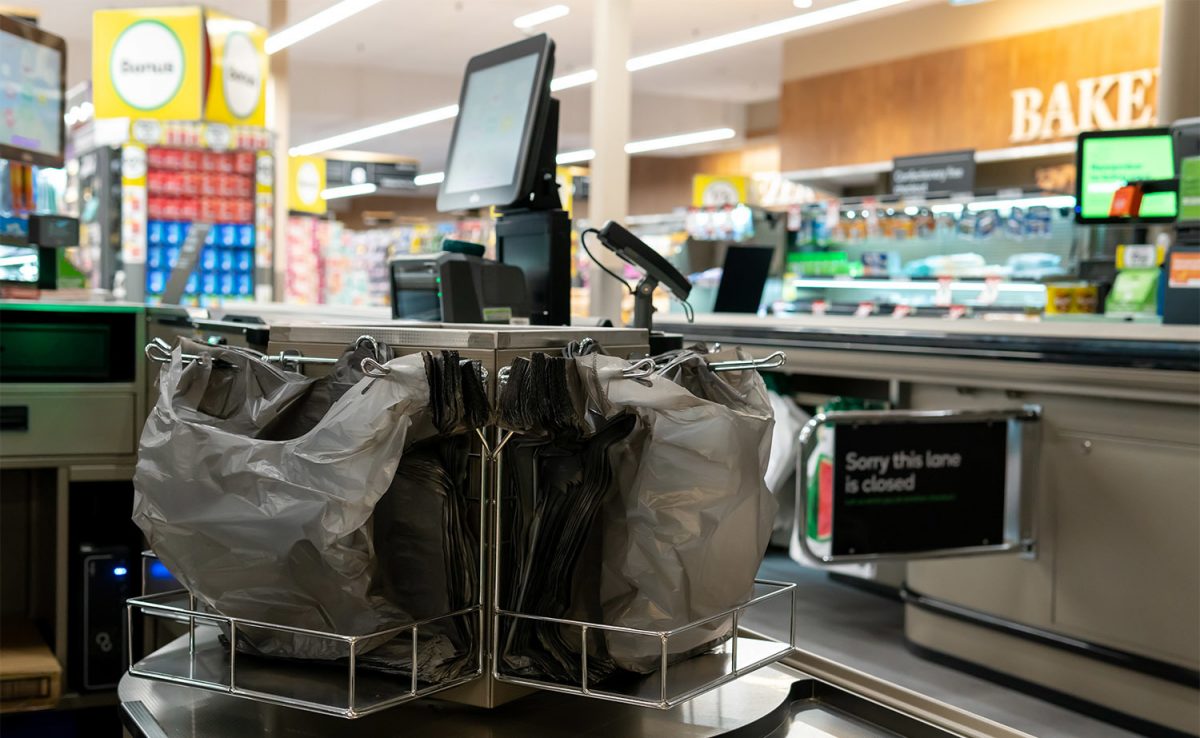
It has taken Baltimore City a little longer than some of its national counterparts to come around on banning plastic bag use in retailers across town. But, with a widely supported new bill that is likely to advance in the city council Monday, that’s about to change.
Baltimore has tried with no avail to pass several different versions of a bill that, at one point, would have banned plastic bags altogether. Now, with the new Comprehensive Bag Reduction bill, a ban on plastic bags and a five-cent fee on paper and compostable bags would be imposed to help the city and retailers recoup costs.
“We’ve reached a point where most people accept the fact that this issue is one where the time has come,” says city councilman Bill Henry, a champion for this issue. “In previous iterations, there were people who raised the issue over whether we needed to do this at all. That has not been part of public debate this time.”
As city leaders and concerned citizens search for ways to curb pollutants across town, reducing the amount of plastic bags has become widely accepted as the prudent thing to do.
The piece of legislation—which will be brought to a second reading vote Monday night should the city council agree upon amendments relating to agency jurisdiction and fees—is a concrete step to doing just that. Henry’s hope is that the bill will be brought to a vote on Monday, however, in the off chance that procedural issues aren’t sorted out (technically the council is not advised to vote on a bill the same day it comes out of committee) it could be further delayed.
From there, there are a few more hoops to jump through before it reaches the mayor’s desk, but Mayor Bernard C. “Jack” Young has voiced support, and Henry is optimistic that the issue he’s been championing since 2008 will finally see the light of day: “This is how civilization works,” Henry says. “We ban the things that are not good.”
Under the law as currently written, businesses would have a year to go through their current stock of plastic bags and make the necessary adjustments. Retailers have come out in support of the initiative, taking their own steps to adjust to its parameters. Local grocery store Eddie’s of Roland Park, for example, has already begun offering shoppers a five-cent credit for each reusable bag they provide for their groceries.
“As we continuously look to improve the shopping experience at Eddie’s with an eye towards environmental responsibility, we felt this was a natural place to make an impact,” says Andrew Schaffer, co-owner of Eddie’s in a press release. “We want to reward customers for supporting green efforts.”
If the bill passes, Henry expects that the city will do its part to educate citizens on how to reduce their plastic bag usage. He hopes that officials will also encourage shoppers to bring their own reusable bags, and even go as far as handing them out to those who might not have the means to acquire their own.
Under the ban, a five-cent fee will be applied to paper or compostable bags, with the city keeping one cent of the fee and retailers retaining four. Henry thinks that the city could start to see the effects of the ban by late next year. When it comes to the city’s current intake, Baltimore’s Mr. Trash Wheel has collected more than 650,000 plastic bags since 2014. Activists hope that the famed garbage collector will see less work should a ban be instituted.
“We’re now looking for ways to be more proactive for sources of some of the pollutants entering our streams, streets, and harbor,” says Jenn Aiosa, executive director of Blue Water Baltimore, an organization that takes a holistic approach to promoting clean waterways in the city. “Folks are having to consider what the alternatives might be to plastic bags, and they’re thinking about the impact of their choices on a daily basis.”
Baltimore’s pollutants don’t just come in from the city, but also its surrounding areas, and this ban is the start to fixing a larger problem. With this in mind, Aiosa is also quick to caution that a piece of legislation isn’t going to be a be-all-end-all solution.
“Sometimes it takes several tries before an idea catches on,” Aiosa says. “This is an awesome opportunity to reconnect with the notion that simple changes can have an impact on the world around us.”